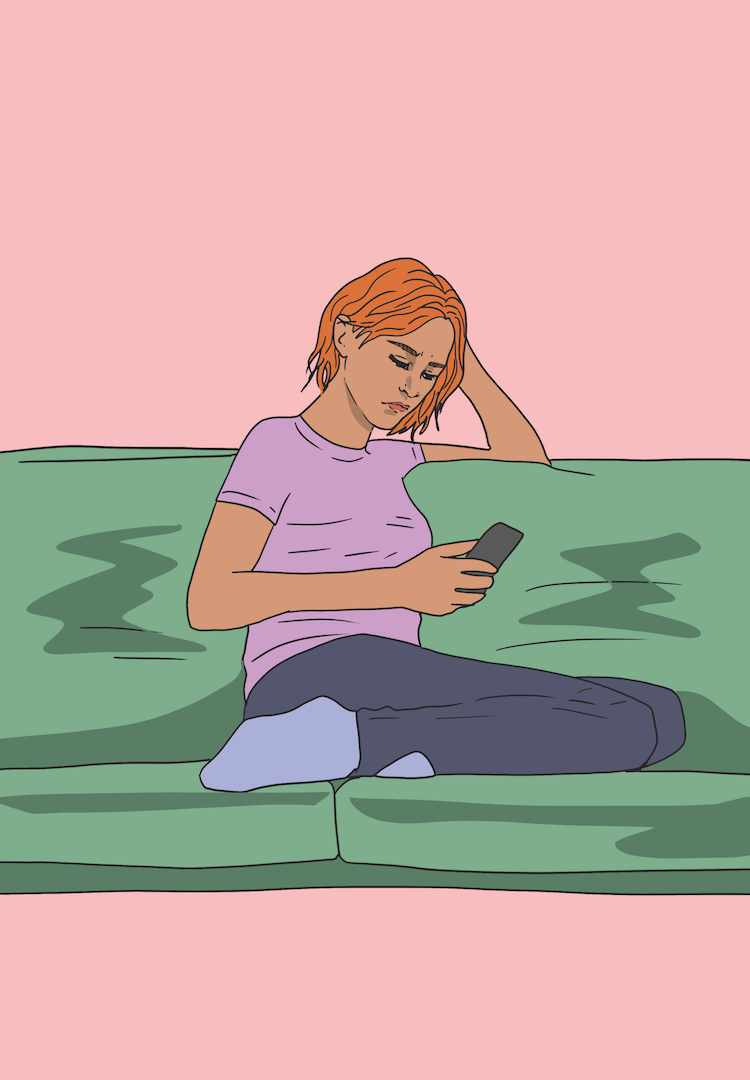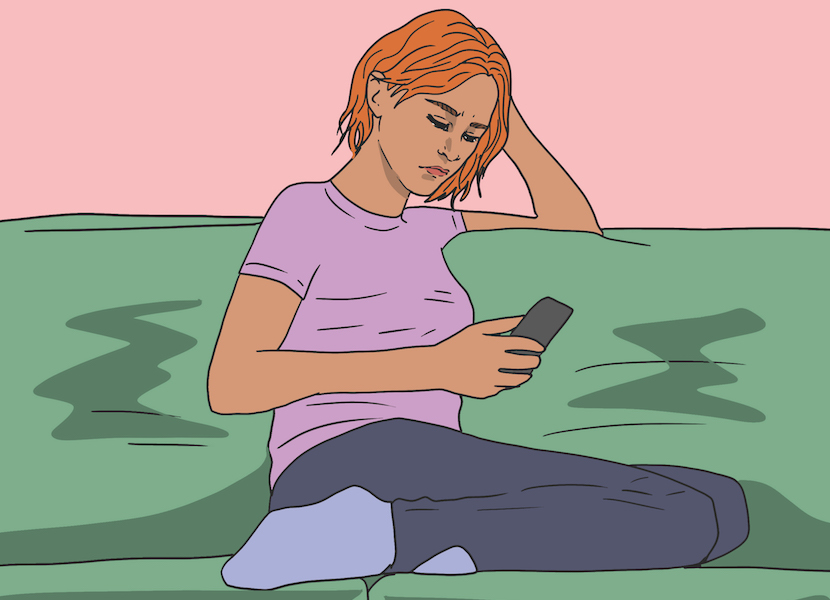I’m fresh out of compassion, does that make me a terrible person?
Image by Twylamae
Words by Ruby Staley
The fundamentals of caring.
As I watched the words “the beginning of a mass extinction” tumble out of Greta Thunberg’s mouth during her speech at the UN Climate Action Summit, I braced for the familiar feelings of dread to hit.
But instead, I exited the video before she even finished speaking. That day, images of Greta virtually haunted me, staring back as I flicked through Instagram Story after Story.
She was willing me to click, to care, to do something.
But although her speech was objectively moving, both in its content and execution (so much so that a multitude of middle-aged white men reacted with immature ridicule), I felt largely unmoved. And while I sympathised for the young girl who was risking her childhood for the cause, my sympathy felt like an obligation. It felt hollow and strained, like forcing a laugh in a moment of awkwardness.
I know I should care and, cognitively, I do. But at this point, I also feel as if I’ve exhausted all my compassion. With good news stories few and far between, my ability to summon an emotional reaction to a crisis is reducing at an alarming rate.
Instead, I am finding strange comfort in watching hours of vapid makeup tutorials on YouTube.
I’m not alone either. Turns out this need to disconnect is a real thing, shared by an increasing number of people. Aptly named ‘compassion fatigue’, the phenomenon is characterised by feeling burnt out, or even traumatised, as a result of absorbing the emotional stress of others.
The condition has existed long before clickbait and shock-fuelled journalism, but now it feels more relevant than ever.
The term was originally coined in 1992 by writer Carla Joinson, after researching emergency department nurses and the exhaustion commonly experienced by caregivers. Similar to vicarious trauma, compassion fatigue is often born from witnessing others in anguish.
However, it more closely refers to a slow emotional and physical erosion, occurring over time when an individual isn’t given the space to refuel and regenerate from their empathy.
Minor symptoms of the condition include being easily startled, extreme tiredness and experiencing feelings of anxiety. These can then develop into more serious cardiac problems, depression and a decreased sense of purpose. We also know that such feelings of stress, anxiety and hopelessness have been found to reduce our levels of empathy.
The result of it all is that, in short, being scared into action is hardly the most effective way to enact positive change.
But the sensationalised journalism and horror stories persist, as do the social media warriors’ calls to action. So in the midst of this, I’m making it a priority to prevent and treat my own emotional burnout.
Historically, caregivers were prescribed tailored self-care and self-preservation techniques to lessen the burden of their second-hand trauma. These guidelines, used to prevent or treat compassion fatigue, encompass physical, psychological and social commitments.
Maintaining a healthy diet and sleeping habits, as well as building a strong social support network are important. Making time for meditation and relaxation is also admittedly significant, but it’s not the whole picture. So, although the pseudo-‘self-care’ narrative pushed by social media can be useful, it’s also somewhat misguided when compared to clinical strategies. Because slapping on a face mask might feel good momentarily, but what you’re avoiding will inevitably find a way to re-enter your consciousness before the clay sets.
A more useful response has been prescribed by compassion fatigue specialist, Françoise Mathieu M.Ed., who in 2007 compiled a list of often-cited tips to transform Compassion Fatigue into Compassion Satisfaction. Although these steps are targeted towards those who are professional caregivers, I found them easy to adapt to my own rehabilitation practices.
First and foremost, Mathieu recommends taking stock of what’s on your plate and from that, balancing your workload to allow some time for yourself every day. Yes, every day. For me, this might mean putting time aside time to go for a therapeutic run, particularly when my schedule starts piling up.
Learning to ask for help and saying no when necessary are also important features of Mathieu’s recommendations — techniques most of us probably need to incorporate into our day-to-day.
Mathieu also recommends we prioritise the causes most important to us, and be selective with the information channels we choose to digest. For me, this means unfollowing the social media accounts that consistently spew negative rhetoric. This will, I hope, allow me to better preserve my emotional energy and channel it where it is most useful.
Rather than mindlessly re-sharing photos of Greta and adding to the noise of the world, I’ll be selective with my compassion and react with outrage when it’s constructive. I’ll fight and yell and protest as I have done before, but with a conscious ferocity.
And when I can’t, when I’m too exhausted by the ‘stuff ’ that takes up space in my mind, I’ll try not to punish myself.
This article was originally published in Fashion Journal 192. You can read it here.










